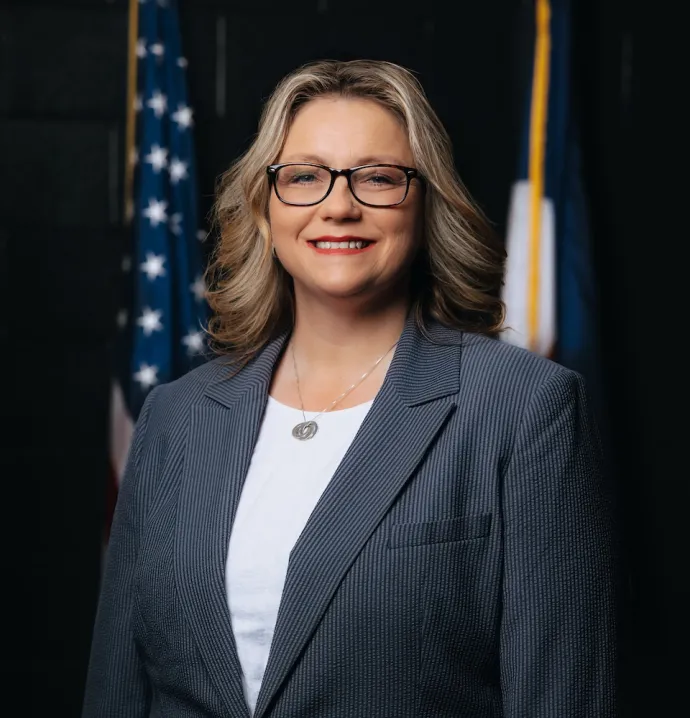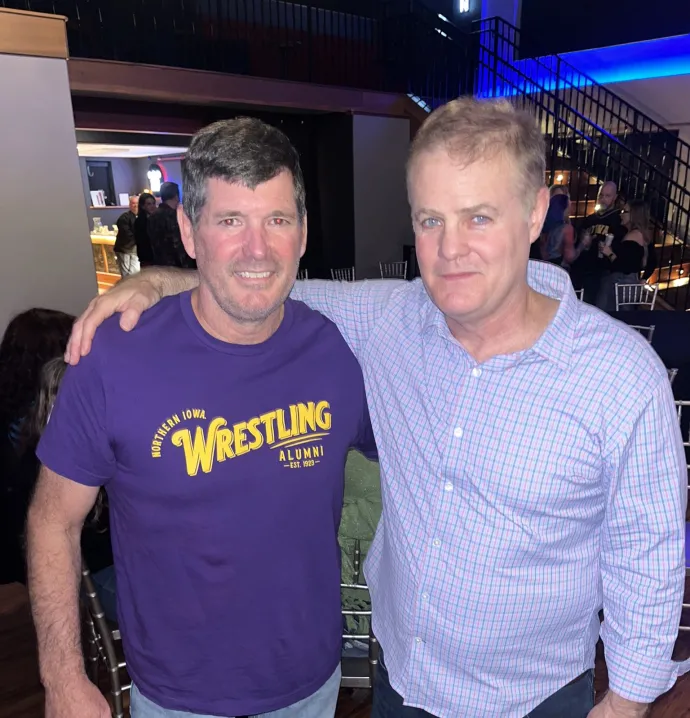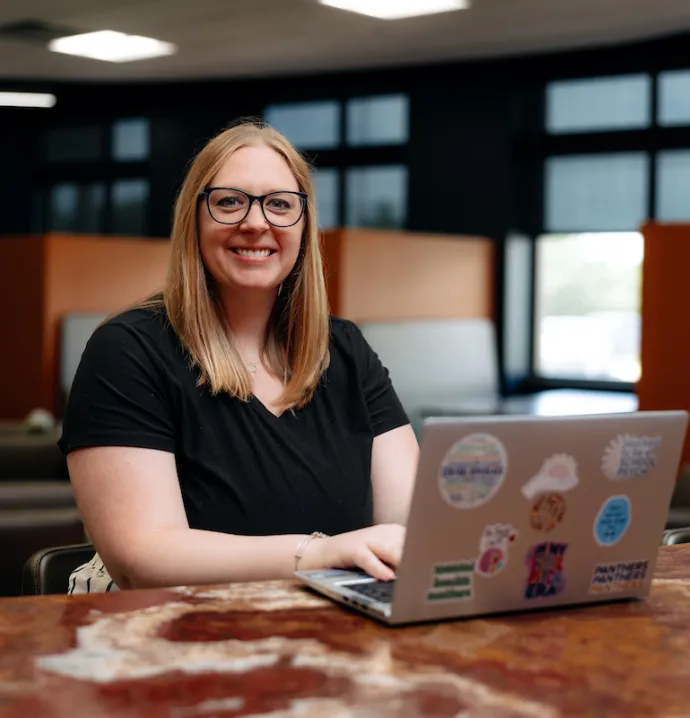Caucuses cause chaos, opportunities for UNI professors
Caucuses cause chaos, opportunities for UNI professors
Three weeks remained before Iowa’s first-in-the-nation caucuses, but rounds of media interviews and education events had left UNI political science professor Donna Hoffman’s voice scratchy and fading. So when a French news outlet reached out to Hoffman — one of several UNI experts on Iowa’s idiosyncratic method for selecting presidential candidates — her voice couldn’t quite manage another phone or video interview.
“That’s one I had to turn down,” said Hoffman recently at the end of what had been another 12-plus-hour day. “Well I didn’t turn it down — I just had to find an alternative method. She emailed me the questions.”
Iowa's presidential caucuses come every four years and with them an intense media focus that upends the lives of at least two UNI professors. Nearly 2,000 reporters were expected to be in Iowa to cover the caucuses and no small number turned to Hoffman and her political science colleague Chris Larimer for help.
Hoffman’s cell sometimes started ringing minutes after she woke up before she could even pour herself a cup of coffee. Larimer cleared his to-do list and made special childcare arrangements — including with a neighboring UNI colleague — for his two children to make time for 7 a.m. radio interviews and last-minute media calls.
“I tried to get a few things done before this week because I knew it would be hectic,” he said. “A lot pops up in the last week, and that's how the media environment works — something happens and they want to talk.”
But Hoffman and Larimer don’t mind the extra attention or work. Their relationship to the media helps inspire class discussions and puts Iowa — and UNI — in the national spotlight. One national reporter, senior Politifacts correspondent Lou Jacobson, even came to campus to speak to Larimer’s “Iowa Politics” class.
“I've known Lou for a while. Several years ago, he started reaching out to me for insight on Iowa politics,” said Larimer. “Lou is a nationally recognized correspondent and columnist, so this was a great opportunity for students. It's not often you get to interact with someone on that scale.”
“It’s a public service”
In addition to putting in extra hours doing media interviews, the professors were also hard at work educating the public directly, doing events like a campus Mock Caucus that drew more than 120 people to the Maucker Union Ballrooms on a cold Monday night last month.
At the event, Hoffman and Larimer took turns explaining the rules of the Republican and Democratic caucuses, walking the students through a trial run of each process. Those gathered also learned that Iowa uses a caucus and New Hampshire has the first primary, each protecting its position with state laws.
“We might not always be the first in the nation,” Hoffman told the crowd last month.
Her statement took on added weight this week when full results for the Democratic caucuses remained unavailable until after the presidential candidates had moved on to New Hampshire, causing many to question whether Iowa’s first-in-the-nation status should continue. Larimer agreed Iowa’s unique role is in jeopardy.
“There has always been criticism of the Iowa Caucuses, but those criticisms seemed heightened this year, even before what happened with the problems surrounding the counting of the results,” said Larimer. “The complexity of the procedures was on full display last night and it obviously didn't go well. The one aspect of all of this that may save the caucuses is that if Iowa doesn't go first, who does? That will be an even larger and more complex matter for the national Democratic Party to resolve.”
Unlike the real thing, January’s Mock Caucus went off without a hitch.
“I had no idea what the caucuses were like so this was really helpful,” said elementary education major Alissa Eaton, ‘21, after the event. “I feel like I’m prepared now,” added Sonja Christensen, ‘21, a Spanish and communications major.
For Hoffman, this flurry of national media coverage, regional events and her regular teaching duties, are all part of her education mission.
“I’m in this job to teach and do research. I’m not in this job to talk to the media, but that is a piece of what we do,” she said. “Part of this job is educating the public, not just educating the students. It’s a public service.”
Overcoming challenges, embracing opportunities
As political scientists, Hoffman and Larimer can often find themselves chained to their desks, reading studies and analyzing data. According to Larimer, media coverage and community events are often a welcome opportunity to make an even bigger impact, turning data analysis into practical impact.
“It gets you outside of your office, you're actually out talking to voters,” he said. “It's important to sit here and look at the data — that’s incredibly important. I'm very much a quantitative political scientist, and I could stare at data all day. But you still have to get out and talk to actual voters and see what they're thinking.”
Communicating with the media also comes with unique challenges. Hoffman said that reporters often pose questions outside her role as a scholar, asking for her opinions or to make predictions about the outcome of elections.
“Journalists want a story, they want excitement, they want conflict, they want prediction. Political scientists tend to be very cautious about prediction,” said Hoffman. “That's not fundamental to what we do. We want to be analysts, and we want to educate people about the system.”
Despite these challenges, the increased media attention is ultimately a good thing, she said. It’s symbolic of Iowa’s political significance, and the opportunities living in Iowa — and attending UNI — can provide for students interested in politics.
“Not only are we in Iowa, where there’s a lot of political activity, but we’re also at a comprehensive university, so professors teach but they also do research,” said Hoffman. “We’re teachers and we’re scholars and we try to involve undergraduates in the work that we do. So students have opportunities if they want to be engaged.”
Larimer echoed Hoffman’s sentiment, pointing out that students involved in winning campaigns in Iowa often gain access to even more opportunities.
“National people are interested in this stuff. We've got to take advantage of being in Iowa,” said Larimer. “If students are interested in working on a campaign, if you can get involved in a campaign that does well in Iowa, those are the people who end up doing big things.”
As for the two professors, Tuesday morning didn’t give them much of a break. Hoffman was quoted in Roll Call, a Capitol Hill publication, on impeachment issues and the State of the Union, and Larimer was quoted in the national newspaper USA Today on the fallout from the caucus fiasco.




